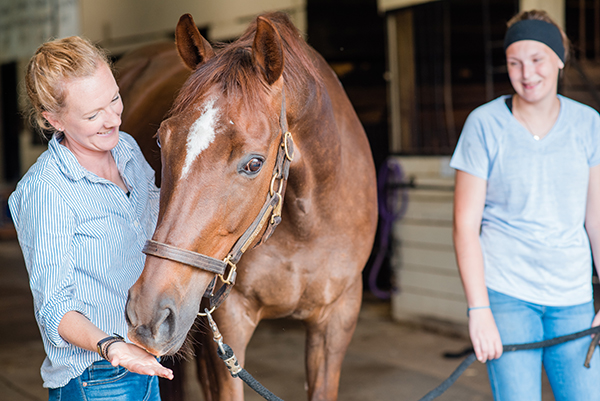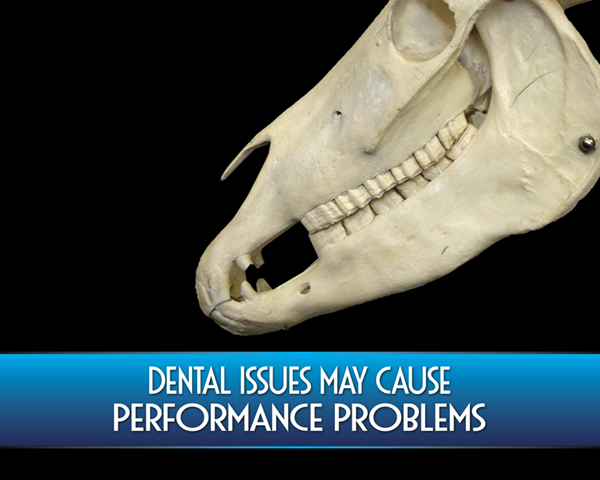What’s the Best Advice You’ve Received Before a Competition?
August 16, 2021 Comments Off on What’s the Best Advice You’ve Received Before a Competition?
From the instructional and humorous to the motivational or calming, it’s always nice to have one final piece of advice before you enter the pen to compete at a big horse show.
Continue reading …Annual Equine Industry Event Returns In-Person This Fall
August 15, 2021 Comments Off on Annual Equine Industry Event Returns In-Person This Fall
“We are excited to reconvene in-person this year with a great program,” said Caitlin Bainum, UF/IFAS Extension Marion County livestock agent. “This year, we will feature some basic but important topics such as hoof care and how to read product labels when applying your own farm herbicides and fertilizers. Attendees will get acquainted with some new rules and laws that affect the transportation of horses and the management of their farms.”
Continue reading …Keep Your Animals Cool as Dangerous Heat Wave Spreads Across Country
August 13, 2021 Comments Off on Keep Your Animals Cool as Dangerous Heat Wave Spreads Across Country
American Humane (edited release) Washington, D.C. – As Americans across the country are sweltering amidst a record-setting heat wave that is making its way across the nation, American Humane reminds pet owners to keep their pets safe, hydrated and cool by following simple tips and being mindful. Intense heat is pulverizing the American Northwest. Across […]
Continue reading …Emory & Henry College Launches New Major in Equine Assisted Therapy
August 12, 2021 Comments Off on Emory & Henry College Launches New Major in Equine Assisted Therapy
(Emory, Va.) – Emory & Henry College will begin offering a new bachelor’s of art degree in Equine Assisted Therapy, starting in Fall 2021. The Equine Assisted Therapy major is an interdisciplinary major blending psychology and equine studies courses, designed to provide students with a thorough knowledge of human psychology and psychopathology and how horses […]
Continue reading …AQHA and Adequan Extend Partnership
August 12, 2021 Comments Off on AQHA and Adequan Extend Partnership
Adequan® is the title sponsor of the Adequan® Level 2 Championships; the AQHA Select World Championship Show, presented by Adequan® (polysulfated glycosaminoglycan); Adequan® Level 2 Year-End High-Point awards; Adequan® Derby Challenge; and also supports other AQHA programs such as the Farnam AQHA World Championship Show, Built Ford Tough AQHYA World Championship Show, AQHA Versatility Ranch Horse World Championship Show, Nutrena AQHA Level 1 Championships, regional AQHA Level 2 classes and Bank of America Racing Challenge.
Continue reading …Takes Steps to Prevent Venezuelan Equine Encephalitis
July 20, 2021 Comments Off on Takes Steps to Prevent Venezuelan Equine Encephalitis
What is EEE, WEE and VEE?
EEE, WEE and VEE are caused by Alphaviruses. EEE is the most common of the three and is found widely in several regions of the United States (especially in areas of high mosquito populations). WEE occurs infrequently but circulates in wildlife. VEE is a Foreign Animal Disease and therefore reportable at both the Federal and State level. VEE occurs in cycles in Central and South America; there were incursions into the United States decades ago.
Continue reading …Dental Issues May Cause Performance Problems
July 17, 2021 Comments Off on Dental Issues May Cause Performance Problems
The horse’s teeth are crucial for proper eating/chewing and therefore a big factor in whether or not the horse obtains adequate nutrition. Healthy teeth are important for good health and fitness. Teeth also play a role in performance of an equine athlete because tooth problems can lead to pain, which can lead to certain behaviors that can affect performance. Sometimes a performance problem may be subtle or not readily recognized as being linked to a tooth problem. It’s important to figure these things out, with proper diagnosis and treatment, in order to address and correct the underlying issue.
Continue reading …
How do you nutritionally manage a horse that ties up frequently?
There is not a generic answer. But keep horses off green grass [which has higher sugar content]; feed low-starch, low-sugar feed; and make sure you have a proper balance of trace minerals, macro nutrients and vitamins. Also, ensure they have daily exercise.
Continue reading …At HOT Horse Shows, Know the Signs of Heat Stroke
July 10, 2021 Comments Off on At HOT Horse Shows, Know the Signs of Heat Stroke
The best way to prevent heat stroke is by first recognizing the signs of heat exhaustion, which include sweating, rapid heart rate, lightheadedness, headache, low blood pressure and muscle cramps.
Continue reading …To Better Assess Lameness in Horses, Researchers Use Technology to Define Normal Muscle Activity
July 5, 2021 Comments Off on To Better Assess Lameness in Horses, Researchers Use Technology to Define Normal Muscle Activity
“We know that horses alter their movement pattern when they’re lame, but we don’t know much about the functional changes in muscles that facilitate these changes in movement,” said Dr. Lindsay St. George, Research Fellow at UCLan, and the study’s primary investigator. “We want to define muscle activity in clinically sound, non-lame horses, and then use this knowledge to quantify adaptive changes in muscle activity that occur when a horse is lame.”
Continue reading …







